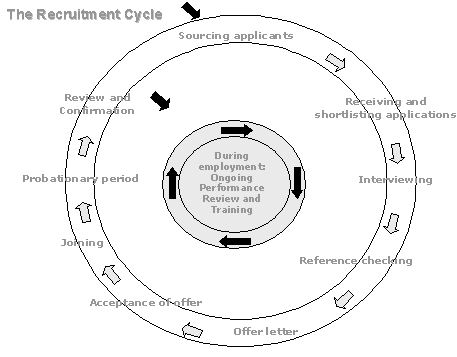 ReConnect Africa is a unique website and online magazine for the African professional in the Diaspora. Packed with
essential information about careers, business and jobs, ReConnect Africa keeps you connected to the best of Africa.
ReConnect Africa is a unique website and online magazine for the African professional in the Diaspora. Packed with
essential information about careers, business and jobs, ReConnect Africa keeps you connected to the best of Africa.


Reducing the Risk in Recruitment
 Recruitment is a thorny issue – particularly for small organisations. In the first of a 2-part article, Vincent Owen, Senior Consultant with HR Consultancy, Interims for Development, offers some tips on hiring the best for your business.
Recruitment is a thorny issue – particularly for small organisations. In the first of a 2-part article, Vincent Owen, Senior Consultant with HR Consultancy, Interims for Development, offers some tips on hiring the best for your business.
In today’s world, we are constantly surrounded by risks. We are at risk in the home, especially the kitchen, and the minute we step outside, we potentially meet other risks…every time we cross the road…drive our car. For many of these risks we can take out insurance policies; we insure our homes against theft and fire…we insure our cars against accidents. However, there is one risk we cannot insure against - and that is employing the wrong member of staff.
If your business does not have a dedicated recruitment function or Human Resources Department or you do not often employ new staff, bearing in mind some of the following will help you reduce the risk of hiring the wrong person for your company.
There are several stages in the recruitment process as shown in the following model:
Sourcing applicants
Even where unemployment may be high, finding suitable applicants is not as easy as it sounds. Advertising in appropriate newspapers can attract new staff to your business, but is not always successful. If using this approach, it is important that the advertisement accurately reflects the role you are trying to fill, or you could be overwhelmed with unsuitable applicants, wasting both your time and theirs. Asking existing members of staff to refer candidates from within their circle of friends and acquaintances may also be a useful source.
Having identified potential candidates, what next? It is often a good idea to ask all applicants to complete an application form as well as provide their CV. This has the advantage of effectively forcing the applicant to provide relevant information they may choose not to include in their CV. At a minimum, to facilitate your short-listing process, clarify the applicant’s education, experience and their job history, ideally with reasons for leaving each employment. Also, check for evidence of eligibility to work in your country
Short-listing Applications
In reviewing which of the candidates you want to take to the next stage of an interview, aim to differentiate between what they do tell you and what they do not tell you! Obviously, a CV is designed to “sell” the applicant to a potential employer and many people tend to err on the side of generosity in terms of their skills and experience. Look out for unexplained gaps in employment and numerous jobs held in a relatively short period. It is good practice to acknowledge all applications, whether or not you intend to take them to the next stage, sending a brief note of acknowledgment to unsatisfactory candidates indicating that you will not be taking their application any further. If your jurisdiction requires it, keep notes of why candidates were unsuitable to avoid any potential claims of discrimination.
Interviewing Applicants
Prepare for interviews by making sure:
Selecting your Candidate
Having completed the interviews, the key questions to ask before you hire are:
References
Nobody is going to offer referees who will not say good things, so why bother to take up references at all? The advantage of taking up references is to have some evidence, however flimsy, about the applicant’s abilities. The risk of not following up references is that you subsequently find out something negative, making the hire a costly mistake. Check with the applicant before you approach their current employer for a reference and make your offer conditional upon satisfactory references.
Part two of this article will be published in the January issue of ReConnect Africa.
Vincent Owen is a Senior Consultant with HR and Training Consultancy, Interims for Development. For further information about Recruitment and Recruitment Skills training, contact Interims for Development at info@interimsfd.com
